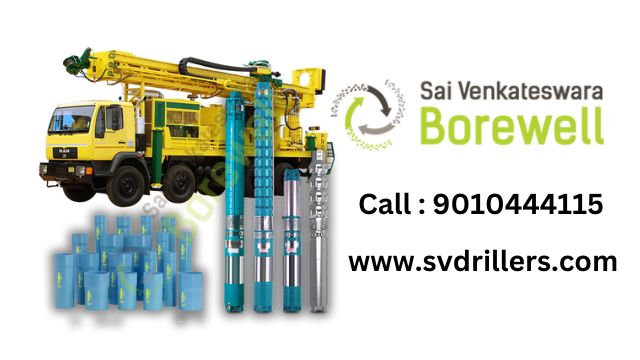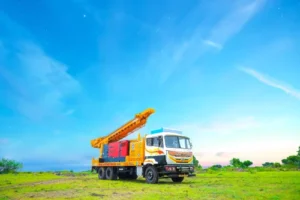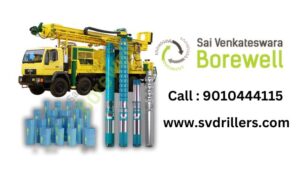Introduction
Rajendranagar, a bustling suburb of Hyderabad, faces growing water demands due to rapid urbanization and population growth. Borewells have become a critical solution for residential, agricultural, and commercial water needs. However, unregulated drilling has led to falling groundwater levels and environmental concerns. To address this, Hyderabad’s authorities have established specific regulations for Borewells in Rajendranagar: Hyderabad Drilling Regulations Simplified, ensuring sustainable water use. This article breaks down the guidelines, compliance steps, and local implications for property owners and businesses.
Why Comply with Borewell Drilling Regulations?
Hyderabad’s groundwater reserves are depleting at an alarming rate, with Rajendranagar among the most affected areas. The Greater Hyderabad Municipal Corporation (GHMC) and Telangana Groundwater Department have introduced strict drilling rules to curb over-exploitation. Compliance with Borewells in Rajendranagar: Hyderabad Drilling Regulations Simplified not only avoids legal penalties but also safeguards community water security. Violators risk hefty fines, borewell sealing, or even criminal charges under the Andhra Pradesh Water, Land, and Trees Act (WALTA).
The Simplified Regulations for Borewells in Rajendranagar
1. Mandatory Permits and Approvals
Before drilling, residents must obtain permission from the Telangana Groundwater Department or local municipal authorities. Applications require details like land ownership proof, drilling depth, and site location. Borewells exceeding 20 meters depth need additional approval due to their higher environmental impact. The streamlined process under Borewells in Rajendranagar: Hyderabad Drilling Regulations Simplified now allows online submissions via the Integrated Management System portal, reducing bureaucratic delays.
2. Restriction on Drilling Zones
Drilling is prohibited near public infrastructure, sewage lines, or wetlands. A minimum distance of 50 meters from contaminated sites and 250 meters from other borewells is enforced to prevent cross-contamination. Residential areas require a 10-meter gap from building foundations to avoid structural damage. These zoning rules ensure community safety and resource sustainability.
3. Technical Standards for Drilling
Only licensed contractors using advanced rotary or percussion drilling methods are permitted. Casings must be PVC or stainless steel to prevent soil and water contamination. Sensors for monitoring water levels are mandatory, and detailed logs of geological formations must be submitted post-drilling. These measures align with Borewells in Rajendranagar: Hyderabad Drilling Regulations Simplified, ensuring transparency and accountability.
4. Registration and Usage Reporting
All operational borewells must be registered with the groundwater department within 30 days of completion. Annual water usage reports detailing extraction volumes are required for commercial and agricultural users. Failure to report can lead to permits being revoked. This data helps authorities monitor aquifer health and implement corrective measures.
Community Responsibility and Conservation
While regulations provide a framework, community participation is vital for long-term groundwater sustainability. Rajendranagar residents are encouraged to adopt rainwater harvesting systems, reuse treated water, and fix leaks promptly. The Hyderabad Metropolitan Water Supply and Sewerage Board (HMWS&SB) offers subsidies for rainwater harvesting installations, complementing the Borewells in Rajendranagar: Hyderabad Drilling Regulations Simplified framework. Collective efforts can mitigate drought risks and reduce dependency on borewells.
FAQs About Borewell Regulations in Rajendranagar
1. How do I apply for a borewell drilling permit in Rajendranagar?
Submit an online application via the Telangana Integrated Management System portal with land documents, site plans, and contractor licenses. Physical applications are accepted at GHMC offices.
2. What permits are needed for agricultural borewells?
Agricultural users must provide proof of land use (agriculture) and obtain a No Objection Certificate (NOC) from the Mandal Revenue Officer (MRO).
3. Can I drill a borewell in a residential layout?
Yes, but only after securing permits and adhering to zoning rules (e.g., maintaining distances from buildings and infrastructure).
4. Are there penalties for illegal borewell drilling?
Yes. Penalties include fines (₹5,000–₹50,000), borewell sealing, and legal action under WALTA for repeat offenders.
5. How do I report illegal drilling activities?
Contact the GHMC helpline (040-2111 1111) or file a complaint via the Telangana Groundwater Department’s website with photo/video evidence.
6. Are the regulations stricter for commercial borewells?
Yes. Commercial users must submit quarterly water usage reports and install digital flow meters to monitor extraction rates.
7. Do the regulations apply to existing borewells?
Yes. Unregistered borewells must be legalized within 90 days by submitting retroactive permits and inspection reports.



